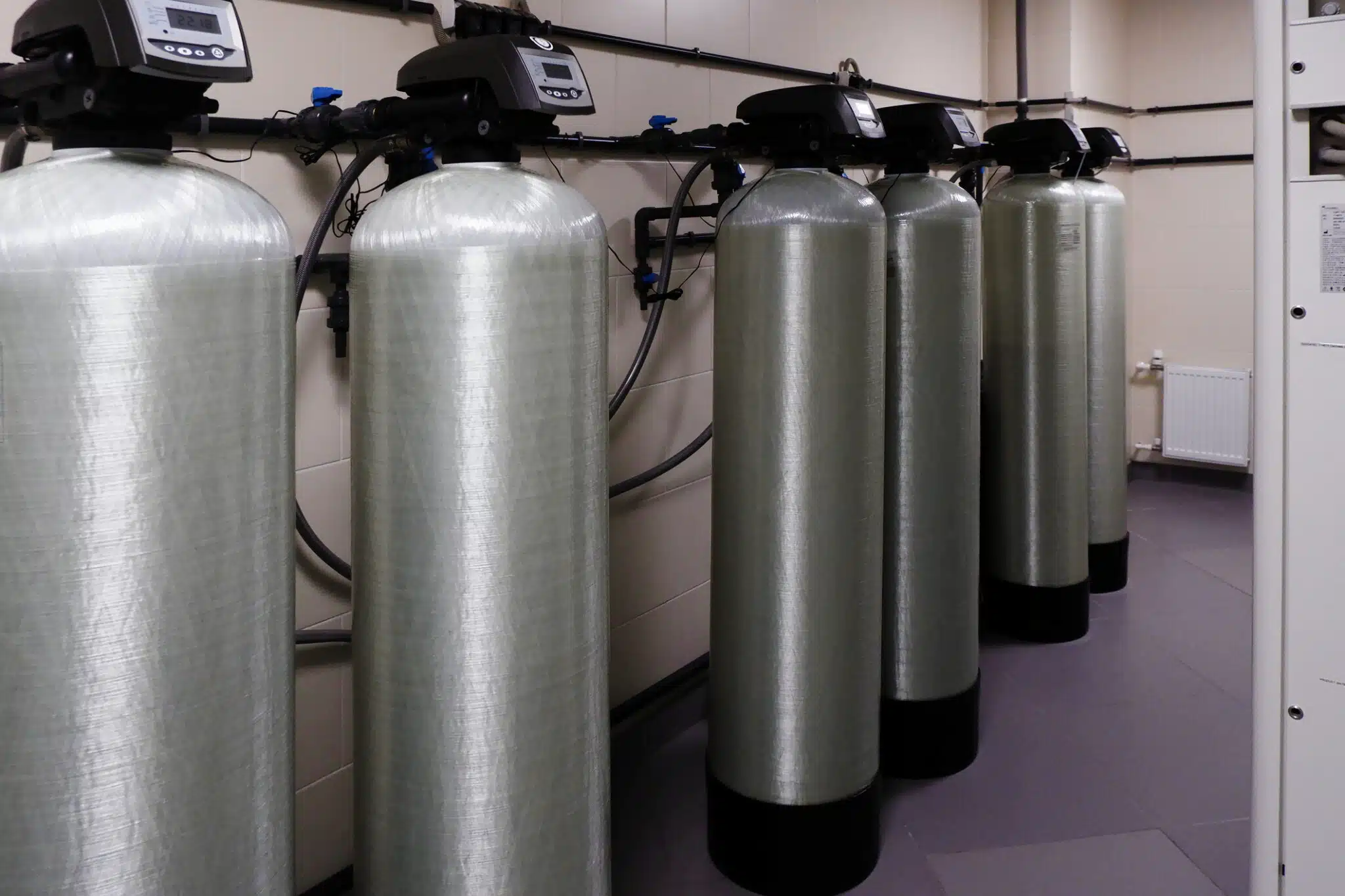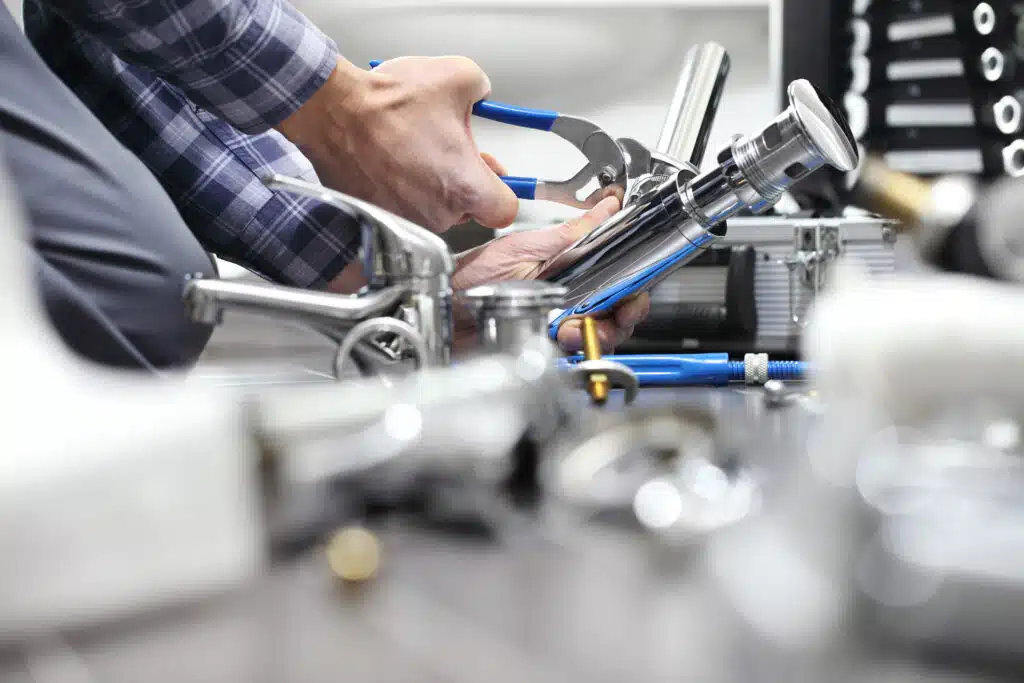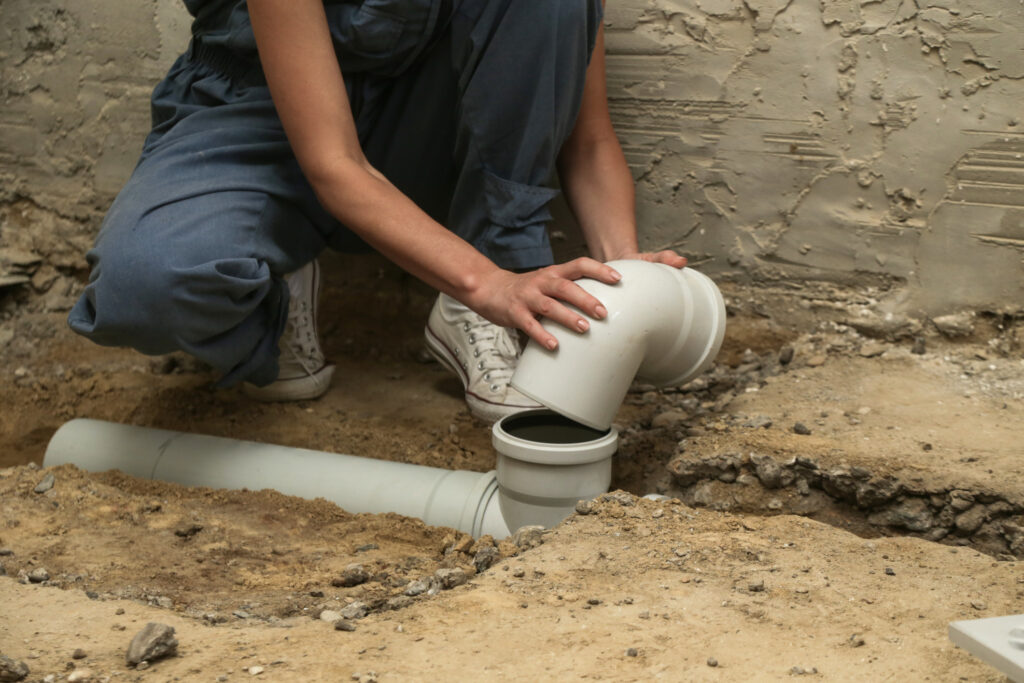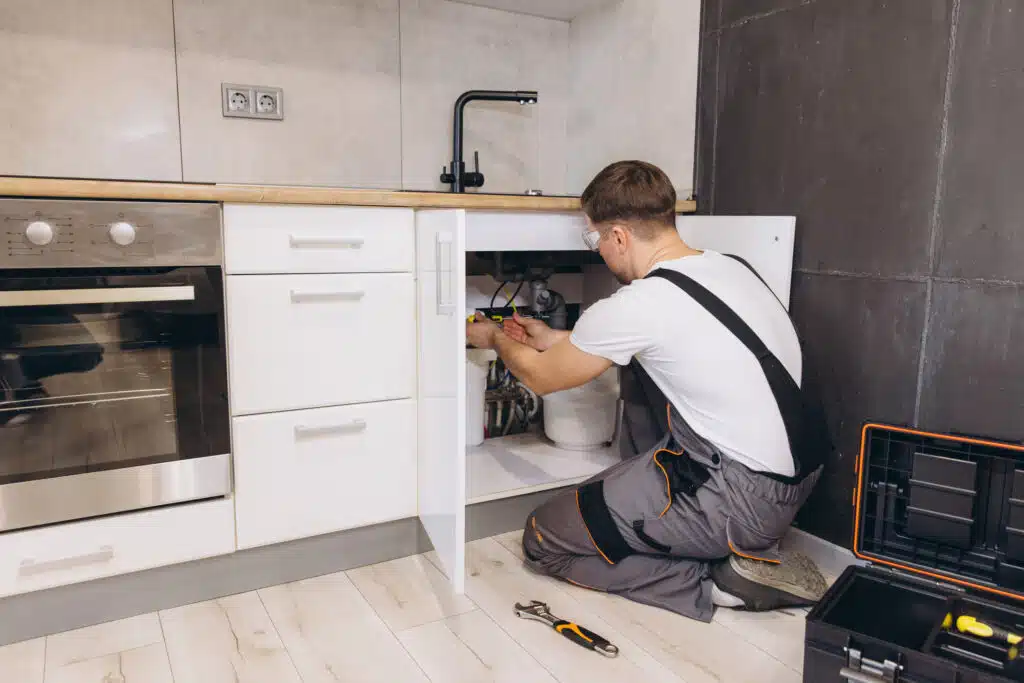Water softener systems tackle hard water problems caused by minerals like calcium and magnesium. They use ion exchange to replace these minerals with sodium, making your water gentler on skin, hair, and appliances. Types include salt-based systems, salt-free conditioners, magnetic softeners, and dual-tank models. Benefits include softer skin, cleaner dishes, and longer-lasting plumbing. If you notice soap doesn’t lather, scale buildup, or dry skin, it might be time for a water softener. Regular maintenance, like checking salt levels and cleaning, keeps the system efficient, protecting your home from the effects of hard water.

Water Softener Systems – Ever notice that your skin feels dry after a shower or that there are stubborn spots on your dishes no matter how much you clean them? That’s the impact of hard water, which is filled with minerals like calcium and magnesium.
These minerals can lead to soap that doesn’t lather well, scale buildup in your plumbing, and even damage to your appliances.
Thankfully, water softener systems can tackle these problems, making your water feel smoother and helping your home run more efficiently. Let’s explore how these systems work and why they might be the solution you need.
How Do Water Softener Systems Work?
Water softener systems are like magic wands for your plumbing, but there’s some cool science behind them. These systems use a process called ion exchange to remove minerals that cause water hardness, mainly calcium and magnesium.
Inside the softener, there’s a tank filled with resin beads that are charged with sodium ions. When hard water flows through, the resin beads attract the calcium and magnesium ions and swap them out for sodium ions.
This swapping action softens the water, making it gentler on your skin, your hair, your pipes, and your appliances. The system then flushes the hard minerals away during a regeneration cycle, keeping the resin beads ready to work their magic all over again.
It’s a simple yet effective way to turn hard water into soft water, making everything from showers to dishwashing just a bit nicer.
Types of Water Softener Systems
When it comes to water softeners, there’s a variety of options, each with its own benefits and quirks. Choosing the right system depends on your specific needs, the hardness of your water, and your maintenance preferences. Here’s a closer look at the main types:
- Salt-Based Water Softeners: These are the traditional choice and the most commonly used. They work by using salt in a process called ion exchange to replace hard minerals like calcium and magnesium with sodium. This results in truly soft water that’s great for your skin, hair, and appliances. However, they require regular maintenance, such as refilling the salt and occasional cleaning of the brine tank, which is something to keep in mind if you’re looking for a low-maintenance option.
- Salt-Free Water Conditioners: Unlike salt-based softeners, these systems don’t remove hard minerals but instead neutralize them, preventing scale buildup without the need for salt. They’re easier to maintain since you don’t have to add salt, and they’re a great option if you’re looking to avoid sodium in your water. However, they might not be as effective in areas with very high levels of water hardness, so they’re often best suited for mild to moderately hard water.
- Magnetic Water Softeners: These innovative systems use magnets to change the properties of the minerals in hard water, making them less likely to cling to surfaces and form scale. They’re super easy to install, often just clamping onto your water pipe, and they require virtually no maintenance. However results can vary widely, and they may not be as reliable as other systems, particularly for households with extremely hard water.
- Dual-Tank Water Softeners: Ideal for larger households or places with extremely hard water, dual-tank systems feature two resin tanks, allowing one to regenerate while the other is in use. This setup ensures you always have access to soft water, even during the regeneration cycle. They’re highly efficient but do take up more space and come at a higher upfront cost.
Each type of system has its own strengths, so it’s important to weigh your options and choose the one that best matches your household needs and water hardness level.
Benefits of Using a Water Softener Systems
Investing in water softener systems can bring numerous benefits that make life at home more comfortable and hassle-free.
By removing hard minerals like calcium and magnesium from your water, these systems improve everything from your daily routines to the overall efficiency of your household appliances.
Water softener systems not only make your water feel better on your skin and hair but also protect your plumbing and appliances, reducing maintenance needs and prolonging their lifespan.
Whether you’re dealing with dry skin, dull hair, or constant scale buildup, water softener systems can provide a noticeable improvement in your home’s water quality and overall comfort.
Softer Skin and Hair
One of the most noticeable advantages of using water softener systems is the improvement in your skin and hair. Hard water often leaves skin feeling dry and itchy, and hair looking dull and lifeless due to the minerals it contains.
Water softener systems remove these minerals, leaving your skin feeling smoother and your hair looking healthier and shinier.
Additionally, soaps, shampoos, and conditioners lather better and rinse off more easily with softened water, making showers and baths a much more pleasant experience. This can also reduce the amount of soap and shampoo you need to use, saving you money on personal care products.
Cleaner Dishes and Appliances
Another significant benefit of installing water softener systems is the impact on your dishes and household appliances. Hard water can cause stubborn spots on dishes, leave a cloudy film on glassware, and result in scale buildup inside appliances like dishwashers, washing machines, and coffee makers.
This buildup not only affects the appearance of your dishes but also reduces the efficiency of your appliances, leading to higher energy costs and a shorter lifespan.
Water softener systems help your detergents work more effectively, so your dishes come out cleaner and your appliances run more efficiently, reducing the need for frequent maintenance or early replacement.
Extended Lifespan of Plumbing and Appliances
Perhaps one of the most practical benefits of using water softener systems is the extended lifespan of your plumbing and appliances. The minerals in hard water can accumulate inside pipes, water heaters, and other appliances, leading to clogs, reduced water flow, and increased wear and tear over time.
This buildup can cause your appliances to work harder, consume more energy, and eventually fail, resulting in costly repairs or replacements.
Water softener systems help prevent these issues, which not only saves you money on maintenance and replacement costs but also helps maintain the overall efficiency and performance of your home’s water systems.
This long-term protection is a valuable benefit that enhances the comfort and functionality of your home, making water softener systems a smart investment for any household dealing with hard water problems.
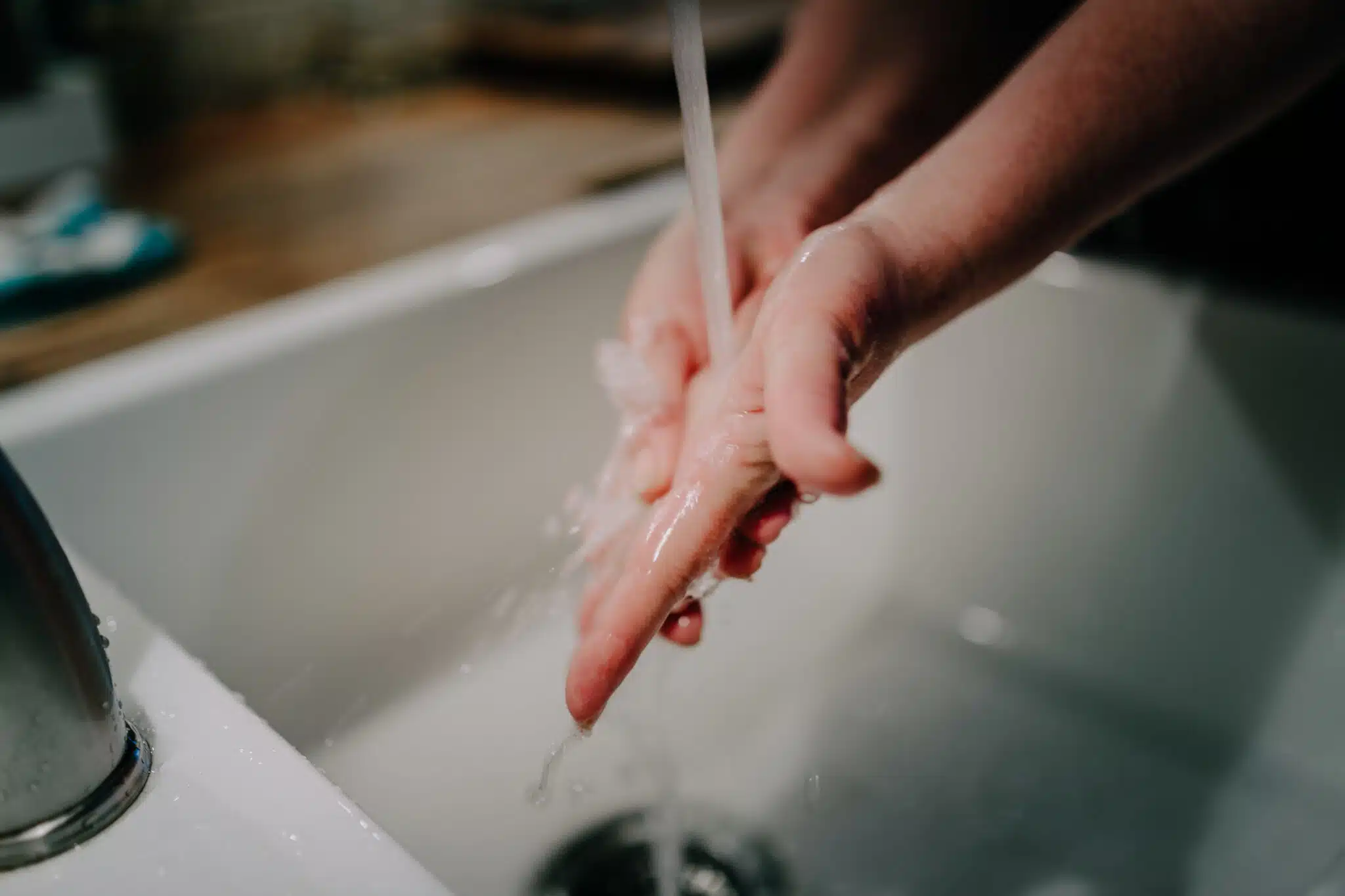
How to Know If You Need a Water Softener Systems
Signs to Look For in Your Home
Several signs can indicate you have hard water in your home. One common sign is when soap doesn’t lather well, leaving you using more soap, shampoo, or detergent than usual.
You might also notice that your skin feels dry, your hair looks dull, or your clothes don’t come out as clean from the wash. Another clear indicator of hard water is scale buildup—those white, chalky deposits you might see on faucets, showerheads, and inside appliances like dishwashers and coffee makers.
This buildup can eventually lead to clogs and reduce the efficiency of your appliances, which can mean more frequent repairs or replacements.
How to Test Your Water Hardness
Testing your water’s hardness level is easy and can be done using a home test kit available at most hardware stores. These kits typically include test strips that react to the minerals in your water by changing color.
To use the kit, simply dip a strip into a glass of your tap water, wait for it to change color, and then compare the result to the color chart provided in the kit to determine your water’s hardness level.
For a more comprehensive analysis, you might consider having your water professionally tested. This will give you a detailed report on the mineral content, helping you make an informed decision about whether a water softener system is needed for your home.
Maintenance Tips for Water Softener Systems
Keeping your water softener systems in good working order is essential for ensuring that it continues to provide soft water for your home. Regular maintenance of water softener systems not only extends their lifespan but also keeps them running efficiently, making sure you always have access to soft water.
Regularly Check Salt Levels
One of the key tasks in maintaining a salt-based water softener system is regularly checking the salt levels in the brine tank. These systems use salt to regenerate the resin beads that soften your water, so it’s important to keep the salt level about half full at all times.
If the salt runs too low, the system won’t be able to properly regenerate, and you’ll start noticing the effects of hard water, like spots on dishes or scale buildup.
To avoid this, make it a habit to check the salt levels every month and top up as needed to keep your water softener system working efficiently. Regular checks ensure the system runs smoothly and continues to deliver the soft water you rely on.
Clean the System Periodically
Over time, water softener systems can accumulate a buildup of iron, sediment, and other impurities, which can affect their performance. To keep everything running smoothly, it’s a good idea to clean the brine tank and the resin tank once or twice a year.
This involves draining the brine tank, scrubbing it with soapy water, rinsing thoroughly, and then refilling it with fresh water and salt. For the resin tank, using a special cleaner designed to remove iron and other mineral deposits can help maintain its efficiency.
Always follow the manufacturer’s instructions for cleaning to avoid damaging your water softener system and to ensure it continues to function properly.
When to Call a Professional for Help
While basic maintenance tasks can usually be handled on your own, there are times when it’s best to call in a professional for your water softener system. If you notice that your system isn’t softening water properly despite having adequate salt levels, or if you hear strange noises, see leaks, or suspect other issues, it might be time for a professional inspection.
A plumber can diagnose problems like clogged resin beds, malfunctioning valves, or other mechanical issues that could be affecting your system’s performance. Getting professional help ensures that any problems are addressed quickly and correctly, preventing further damage and keeping your water softener system in optimal condition.
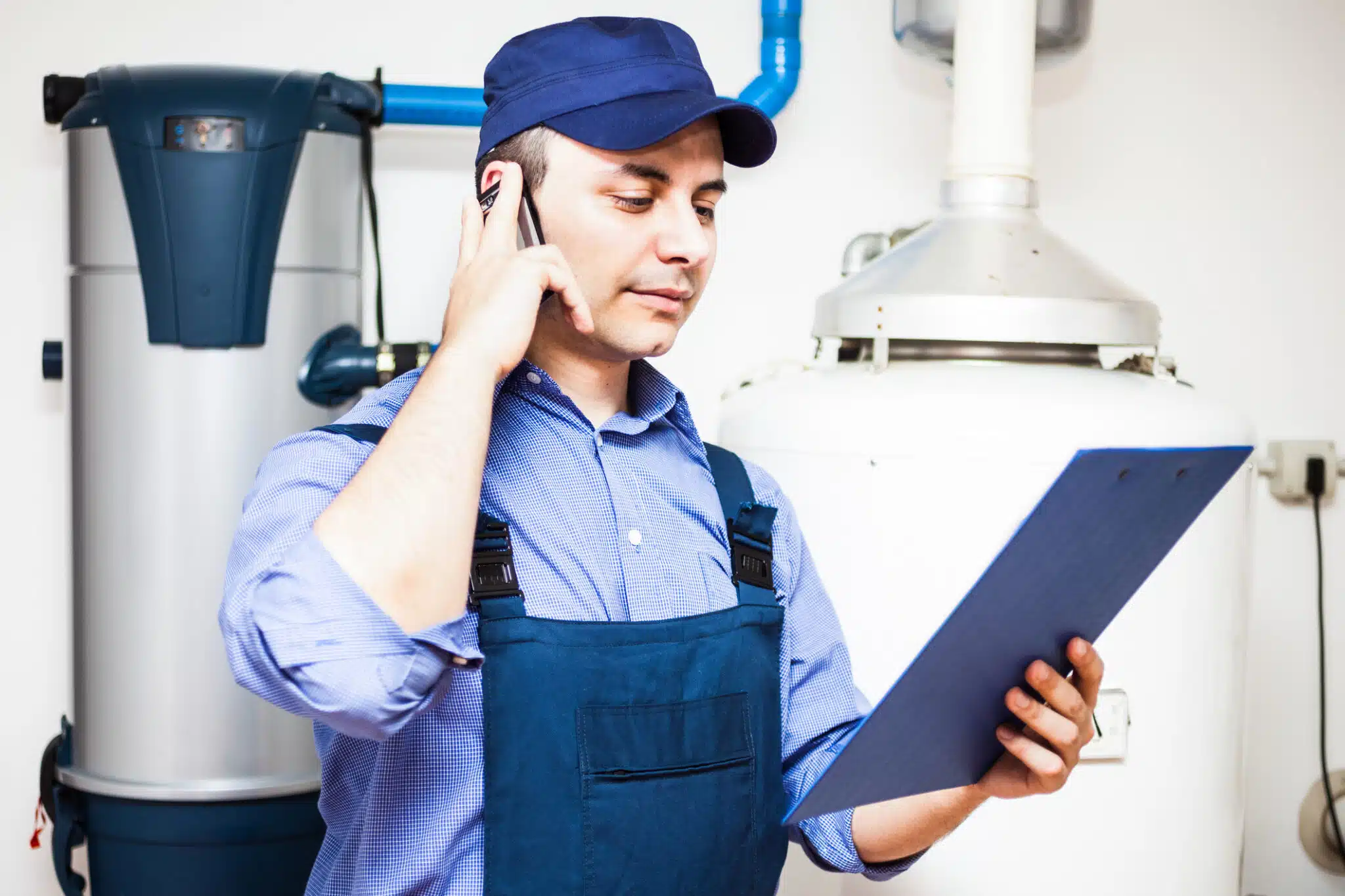
Choosing the Right Water Softener System for Your Home
Type of Water Softener System
The type of water softener system you choose should align with your water hardness level and personal preferences. Salt-based systems are highly effective at removing hard minerals like calcium and magnesium, but they require regular salt refills and maintenance, such as cleaning the brine tank.
Salt-free conditioners are lower maintenance and don’t add sodium to your water, making them a good option for those who prefer less upkeep, but they may not work as well in areas with very hard water.
Dual-tank systems provide a continuous supply of soft water, even during regeneration, making them ideal for larger households or homes with high water usage. However, dual-tank systems take up more space and come at a higher initial cost compared to single-tank models.
Water Hardness Level
Knowing the hardness level of your water is crucial when choosing a water softener system, as it directly influences the type and capacity of the system you’ll need. This can be easily determined with a home test kit or professional testing, which measures the concentration of minerals like calcium and magnesium in your water.
If your water is extremely hard, you might need a more robust system, such as a high-capacity salt-based softener or a dual-tank model, to handle the high mineral content effectively.
For water with moderate hardness, a standard salt-based or salt-free system might be sufficient to meet your needs without overcomplicating maintenance. Understanding your water’s hardness level helps you select a system that’s both efficient and well-suited to your household.
Installation and Maintenance Considerations
Installation and maintenance requirements are important factors to consider when selecting a water softener system. Some systems, like dual-tank softeners or advanced salt-based models, can be complex and usually require professional installation to ensure they function correctly and maintain any applicable warranties.
Simpler systems, such as magnetic or certain salt-free conditioners, are often more user-friendly and can be installed as DIY projects, saving on installation costs.
Additionally, consider the ongoing maintenance needs—salt-based systems require regular salt additions and periodic cleaning, while salt-free options generally demand less upkeep.
Choosing a system with the right installation and maintenance requirements ensures it fits seamlessly into your home and lifestyle, providing reliable, hassle-free water softening.
Ready to Transform Your Water Quality?
Say goodbye to hard water problems with a reliable water softener system from Benjamin Franklin Plumbing of Lancaster! Serving Lancaster, York, and Harrisburg, PA, our expert team is here to help you choose, install, and maintain the perfect system for your home. Don’t let hard water keep causing trouble—contact us today to schedule a consultation and start enjoying the benefits of softened water!
FAQ’s About Water Softener Systems
Can I drink softened water?
Yes, you can drink softened water, but it’s important to know that it contains a small amount of sodium. The amount of sodium added depends on the hardness of your water. If you are on a low-sodium diet, you might want to consider a salt-free water conditioner or adding a reverse osmosis system to remove the sodium from your drinking water.
How long does a water softener last?
The lifespan of the water softener systems typically ranges from 10 to 15 years, depending on the type, brand, and how well it’s maintained. Regularly checking salt levels, cleaning the system, and scheduling professional maintenance can help extend the life of your water softener systems.
Is softened water safe for pets and plants?
Softened water is generally safe for pets to drink, although some pets with specific health conditions might require water with less sodium. For plants, it’s usually better to use untreated water since the sodium in softened water can affect soil quality over time. Rainwater or water from a bypass tap is a good alternative for watering plants.
Can I install the water softener systems myself?
While it is possible to install a water softener system yourself, especially if you have some plumbing experience, professional installation is recommended. A professional will ensure that the system is correctly installed and optimized for your home’s specific water needs, and it helps maintain any warranties that may require professional setup.
How often should I add salt to my water softener?
How often you need to add salt to your water softener systems depends on your water usage and the hardness of your water. Typically, checking your salt levels once a month is a good practice. The brine tank should be about half full of salt at all times, and you should avoid letting the salt level drop below the water level in the tank.








